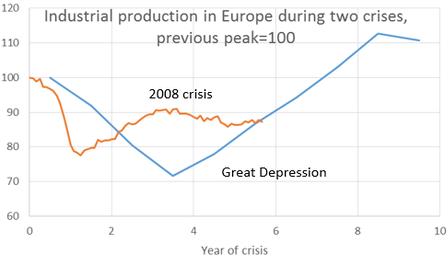 This image is cropped from a picture in an article by photojournalist Nina Berman, Gun Rally Fashion Then and Now. She went to the Come and Take it Rally in San Antonio last month. It’s one of these relatively common rallies where people walk around with loaded guns. The article is really interesting because she’s able to put it into perspective having photographed similar events in the early 1990s. And things really have changed, although I can’t make up my mind if it was obvious or not.
This image is cropped from a picture in an article by photojournalist Nina Berman, Gun Rally Fashion Then and Now. She went to the Come and Take it Rally in San Antonio last month. It’s one of these relatively common rallies where people walk around with loaded guns. The article is really interesting because she’s able to put it into perspective having photographed similar events in the early 1990s. And things really have changed, although I can’t make up my mind if it was obvious or not.
She notes that in the 1990s, there was the occasional person dressed up as Uncle Sam or a confederate soldier. But now that kind of stuff is completely overshadowed by the “happy consumers flaunting their bling.” And in describing it that way, she isn’t just talking about the “red bustier” and “matching lipstick” of the young woman in the picture here. She’s also talking about the “black rifle across her chest.” She even writes, “At the Alamo that day, I saw a whole new generation of gun owners who wore their weapons like Madison Avenue socialites wear their Hermes bags.”
Guns can be surprisingly cheap. But most of the guns you see on display are pretty expensive. And all the gun aficionados (you might call them “nuts”) are very eager to tell you how much they spent on this or that gun. As is well reported, fewer and fewer Americans own guns even while the total number of guns goes up. Of the people I’ve know, they either own no guns or they own a lot. And here I’m not even talking about the five or six that a hunter might reasonably have. People often have twenty, third, forty or more guns—collections worth tens of thousands of dollars.
So I think Berman is definitely onto something. Men have their reasons for stockpiling guns. And I understand them. I’m as much aware of the dangers of governments as they are. (However, they are mostly clueless about so many other threats to their life and liberty.) But after a while, the gun collection stops being about any concerns for one’s safety. If you have forty guns in a box in your closet, you’re a consumer—no more or less than a grammar school kid collecting Garbage Pail Kids.
But when you dress up like a Captain America ripoff and strap your assault rifle on with its “Don’t Tread on Me” bumper sticker, you aren’t protesting. You are strutting your stuff. You are showing off. And that’s great! Just keep that bolt blocked by that colorful plastic straw. Safety first!

 Cropped from a photo most likely by Aden Bishar.
Cropped from a photo most likely by Aden Bishar. The days of the Senate filibuster may be numbered—at least nomination filibusters. I say this because
The days of the Senate filibuster may be numbered—at least nomination filibusters. I say this because  The United States is in the midst of the most sweeping health insurance expansions and market reforms since the enactment of Medicare and Medicaid in 1965. Our 2013 survey of the general population in eleven countries—Australia, Canada, France, Germany, the Netherlands, New Zealand, Norway, Sweden, Switzerland, the United Kingdom, and the United States—found that US adults were significantly more likely than their counterparts in other countries to forgo care because of cost, to have difficulty paying for care even when insured, and to encounter time-consuming insurance complexity. Signaling the lack of timely access to primary care, adults in the United States and Canada reported long waits to be seen in primary care and high use of hospital emergency departments, compared to other countries. Perhaps not surprisingly, US adults were the most likely to endorse major reforms: Three out of four called for fundamental change or rebuilding.
The United States is in the midst of the most sweeping health insurance expansions and market reforms since the enactment of Medicare and Medicaid in 1965. Our 2013 survey of the general population in eleven countries—Australia, Canada, France, Germany, the Netherlands, New Zealand, Norway, Sweden, Switzerland, the United Kingdom, and the United States—found that US adults were significantly more likely than their counterparts in other countries to forgo care because of cost, to have difficulty paying for care even when insured, and to encounter time-consuming insurance complexity. Signaling the lack of timely access to primary care, adults in the United States and Canada reported long waits to be seen in primary care and high use of hospital emergency departments, compared to other countries. Perhaps not surprisingly, US adults were the most likely to endorse major reforms: Three out of four called for fundamental change or rebuilding.
 This morning Capt Fogg brought my attention to yet another faux right wing scandal,
This morning Capt Fogg brought my attention to yet another faux right wing scandal,  On this day in 1887, the great painter
On this day in 1887, the great painter